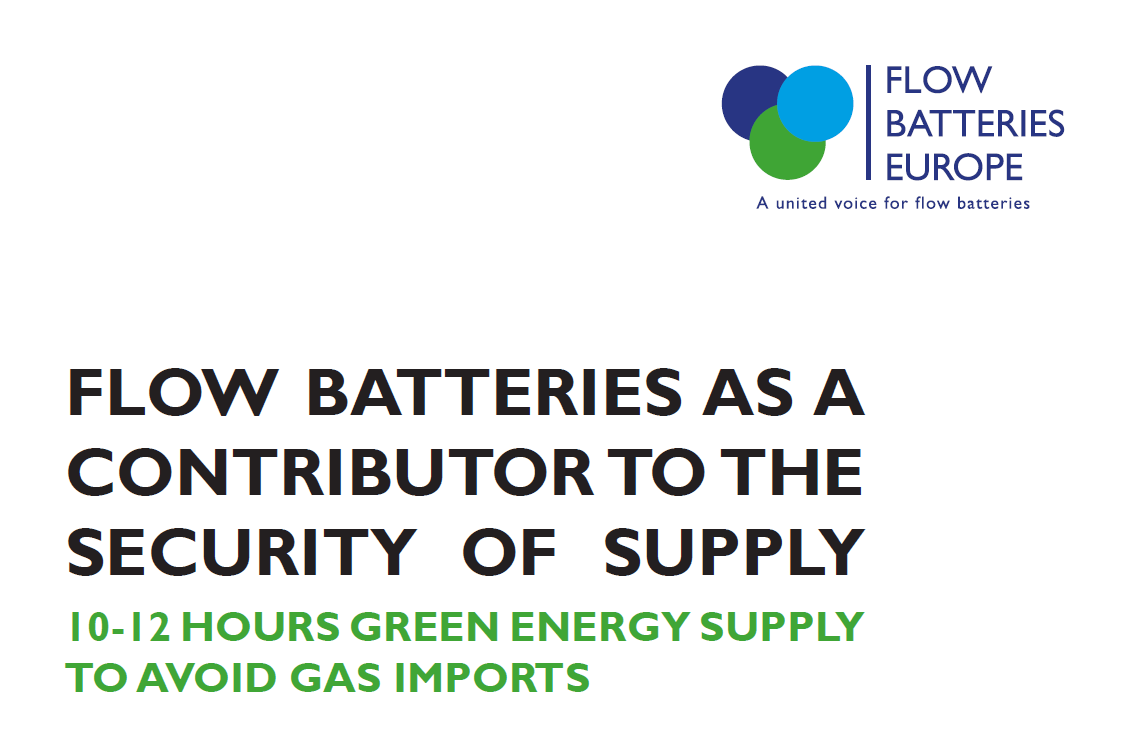With the onset of the war in the Ukraine, it has become clearer than ever that the European Union must work towards its energy independence and self-sufficiency. However, the EU must also avoid jeopardising its climate commitments by turning back towards fossil fuels. Instead, the EU must stand firm in its commitment to achieve carbon neutrality by 2050, which includes the transition to a renewable-based energy system. Flow batteries, as an important long-duration storage technology, can play a significant role in supporting this transition.
Since renewable energy is inherently variable, solutions are needed to ensure power availability and grid stability. Curtailment is not only highly inefficient, but is also costing a lot to the EU Member States. For example, in 2020, Germany curtailed 5900 GWh of wind energy, or about 5% of its total production, costing EUR 730 million in total.1 In the same year, Austria curtailed 80% of its wind production at 5590 GWh, costing EUR 510 million.2 It is possible to substantially increase the proportion of generation from renewable energy, provided that the energy system is set up to be more flexible and allow to add capacity, shift energy, and improve power quality through energy storage solutions. Energy storage technologies therefore have a fundamental role to play in the clean energy transition, ensuring that more renewable energy can be introduced and used efficiently within our power system.
Download the full statement here: http://jens-noack.com/wp-content/uploads/2022/03/Flow-batteries-and-security-of-supply-position-paper-final.pdf

